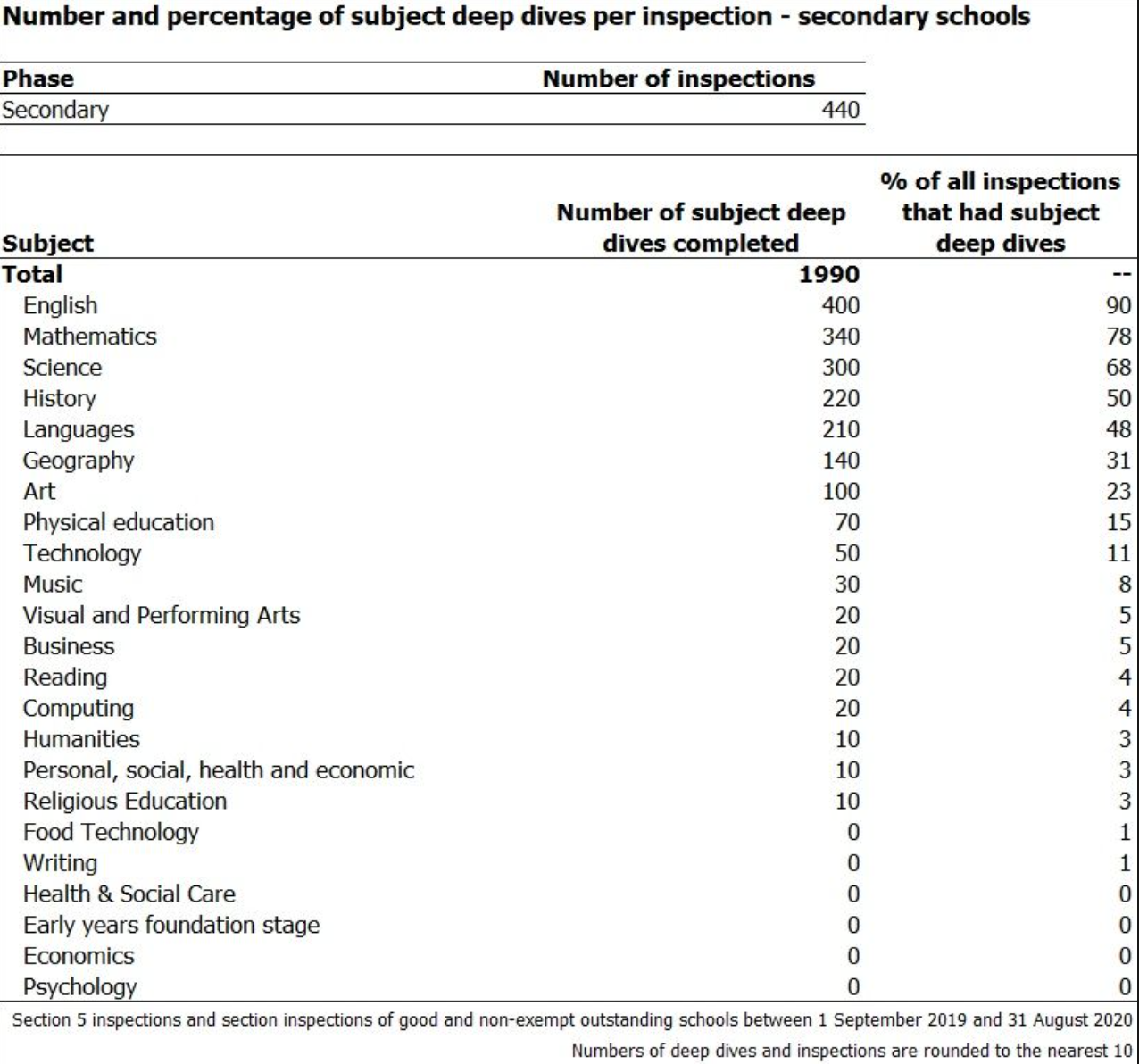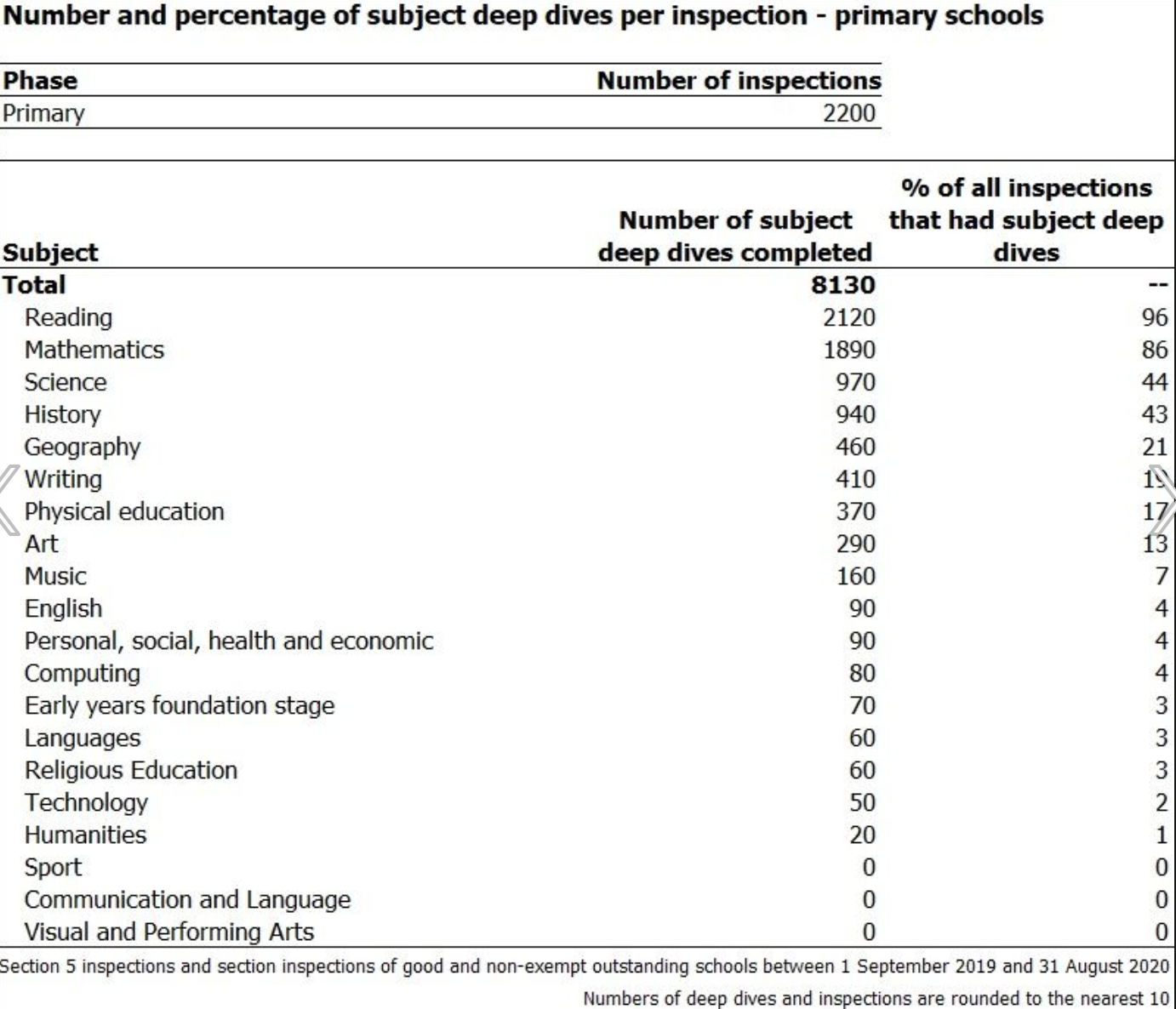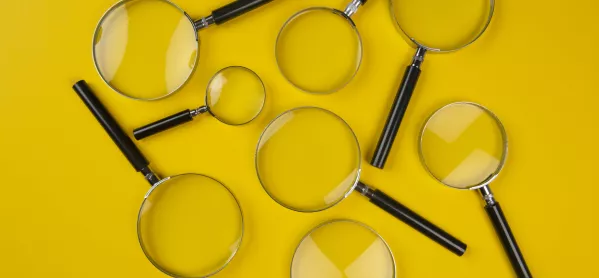A breakdown of OfstedŌĆÖs curriculum-focused inspections has shown major variations in how often different╠²subjects are chosen for ŌĆ£deep divesŌĆØ.
Data from more╠²than 2,000 school╠²inspections, since September last year, shows that╠²primary school inspectors were more than twice as likely to look at history as╠²geography.
And at secondary school, 90 per cent of inspections involved deep dives into English compared with 78 per cent in maths and 68 per cent in science.
The figures also reveal that in╠²both primary and secondary inspections, neither arts or music feature prominently in the╠²deep dives.
Deep dives: How will Ofsted inspect the curriculum
Ofsted: A first look at watchdogŌĆÖs curriculum focused inspections
Inspection: Watchdog introducing quality of education grade
In primary school inspections, art was the subject of a deep dive in 13 per cent of inspections and music was looked at in seven per cent.
At secondary level, 23 per cent of inspections looked at art and eight per cent looked at music.
The data has been obtained through╠²a freedom of information request╠²and published on LinkedIn by former Ofsted divisional manager Adrian Gray.
The deep dive is a key element of OfstedŌĆÖs school inspections under its current framework, which was launched in September last year.
It is╠²part of the inspectorateŌĆÖs╠²assessment of a schoolŌĆÖs curriculum, which feeds into the quality of education grade.
that inspectors╠²will always carry out a deep dive in reading and in one or more foundation subjects at primary school, and that they╠²will often carry out a deep dive in maths.╠²╠²
At secondary level, Ofsted carries out deep dives into between four and six subjects.╠²
A breakdown of the inspections shows reading and maths were the most common subjects for a deep dive in primary followed by science, history and geography.
At secondary level, English was the most commonly looked at subject followed by maths, science, history╠²and languages.
Breakdown of OfstedŌĆÖs deep dives by subject


In his LinkedIn post, Mr Gray said: ŌĆ£The data shows that Ofsted is not really challenging across the whole curriculum with any consistency.
ŌĆ£Despite PE being a compulsory subject for all pupils up to 16, it only featured in 15 per cent╠²of secondary schools.
ŌĆ£Where are the arts? Music featured in eight per cent╠²of secondary and seven per cent╠²of primary inspections.ŌĆØ
He also said it was unclear why history was being looked at twice as often as geography at primary school level.
And he╠²added: ŌĆ£In╠²primaries, some subjects are almost ignored. Technology, languages or RE were each looked at in barely three per cent╠²of inspections;╠²art and music get only a little more interest.ŌĆØ
OfstedŌĆÖs routine school inspections have been on hold since March because of the coronavirus crisis but are currently scheduled to return in January next year, although this date is being kept under review.
Education secretary Gavin Williamson told the Schools and Academies Show last week that an announcement on OfstedŌĆÖs return would be made within weeks.
╠²
╠²
╠²
╠²







